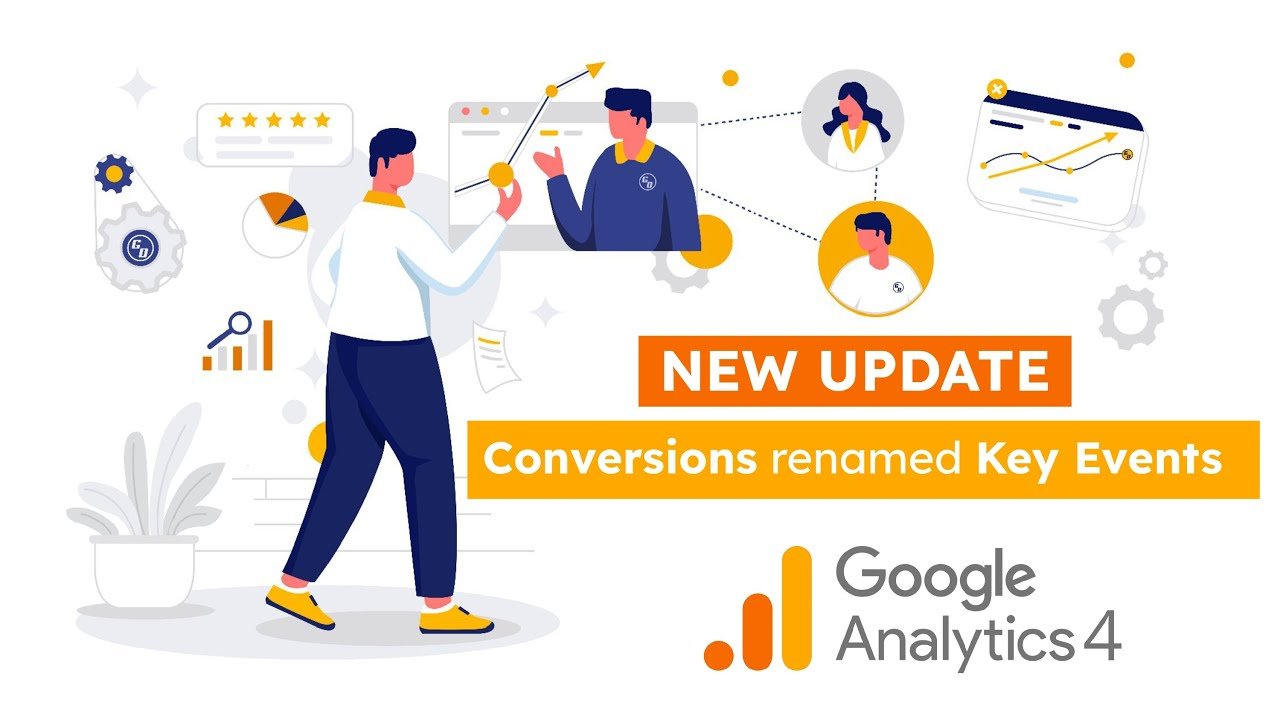In a recent update, Google Analytics has rebranded its conversions as key events, aiming to provide clarity and differentiation from conversions in Google Ads. This change facilitates a more streamlined understanding of the metrics involved, ensuring better alignment with business objectives and advertising strategies.
No Action Required
For existing users, there’s no need to make any adjustments to your setup. The transition to key events is seamless, with no disruption to how conversions are tracked and reported in Google Analytics. Your current configurations and data remain intact, maintaining continuity in your analytics workflow.
Integration with Google Ads
If your Google Analytics account is linked to Google Ads, conversions derived from Analytics key events seamlessly translate into conversions within the Google Ads platform. This integration ensures that your advertising efforts are accurately reflected in both Analytics and Google Ads, providing a comprehensive view of campaign performance.
Understanding Key Events and Conversions
Key Events
Key events represent the pivotal interactions on your website or app that align closely with your business goals. Examples include purchases, newsletter subscriptions, or any other significant actions that indicate user engagement or conversion. These events are pivotal for understanding user behavior and optimizing your marketing strategies.
Conversions
Conversions, generated from key events, serve as vital performance indicators for your advertising campaigns. By translating key interactions into actionable metrics, you gain valuable insights into campaign effectiveness and user engagement. These conversions are shared between Google Ads and Google Analytics, ensuring consistency in reporting and optimizing bidding strategies within Google Ads.
Summary of Updates
Here’s a breakdown of the key points reflecting the recent changes:
- Events vs. Key Events:
- An event denotes a specific behavioral interaction.
- A key event is a significant interaction marked as important to your business.
- Conversion Visibility:
- Key events are visible in Analytics reports.
- Conversions derived from key events are eligible for reporting and bidding in Google Ads.
- Future Enhancements:
- The Advertising section in Analytics promises additional features for advertisers, including enhanced conversion reporting and optimization tools.
Frequently Asked Questions
Why are conversions being renamed to key events?
We’ve changed the name to make it easier for you to understand and compare your advertising performance across Google Ads and Analytics. This update also brings more advanced reporting features to Google Analytics 4 and helps you focus on the most important actions for your business.
Do key events and conversions share the same attribution settings?
Yes, you can adjust attribution settings for key events in the Admin section. You can change how key events are credited and determine how far back interactions are considered for attribution credit.
How do you create Google Ads conversions from Google Analytics key events?
Now, you can directly create Google Ads conversions based on key events from your Google Analytics data. Each key event can be turned into a web conversion and app conversion in every linked Google Ads account.
Can I use non-key events to create a conversion?
Yes, any Google Analytics event can be used to create a Google Ads conversion. If you create a conversion from a non-key event, it will automatically become a key event.
How many Google Ads conversions can I create?
There’s no limit set by Google Analytics. You can create as many conversions as you need based on your key events.
Does this change affect other Google advertising platforms?
The name change only affects Google Ads and Analytics. Other platforms like Campaign Manager 360 and Display & Video 360 remain unaffected.
Will my Google Ads conversions based on key events get exported through BigQuery?
No, Google Ads conversions won’t be exported through BigQuery.
Conclusion
The transition from Analytics conversions to key events represents a strategic move by Google to refine the analytics landscape, providing users with more intuitive insights and actionable data. By aligning terminology and functionality across platforms, businesses can effectively measure, optimize, and enhance their advertising strategies for greater success. Visit us to read more at mymuster.com

